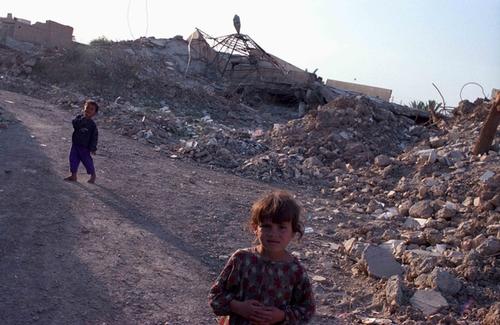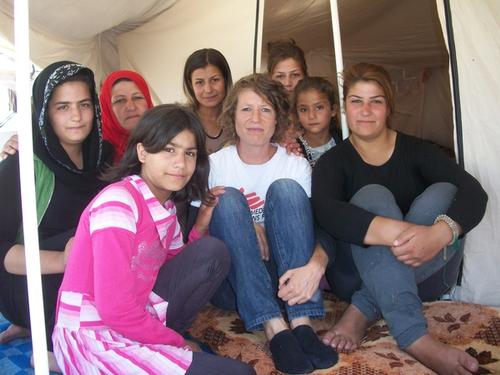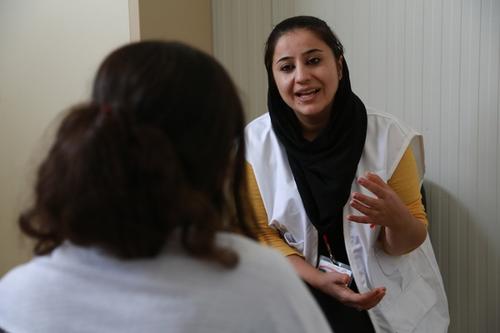Introduction
Mental health disorders and emotional distress are as debilitating and agonizing as physical health problems. According to The World Health Organisation, mental health disorders are the fourth leading cause of ill health in Iraqis over the age of 5 years. There is little doubt that years of political and social repression, punctuated by wars, and followed by a post-war period characterised by interrupted and insufficient basic services have taken their toll on the Iraqi people.
Few people in Iraq have remained untouched by the trauma associated with years of unrest and instability.
Societies which have experienced years of suffering and social upheaval due to long periods of violent conflict not only face high levels of emotional distress, but have great need of a healthy, productive population to rebuild their country. However, as mental health problems are often less visible than physical ill health, and often less understood by most in the community, mental health care is frequently significantly less resourced than physical health care.
In 2009, Médecins Sans Frontières (MSF) in collaboration with the Iraqi Ministry of Health (IMoH) launched a program aimed at opening up access to psychological counselling, and at catalyzing the integration of mental health care as a crucial component of the Iraqi health system. The project focussed on nonpharmaceutical approaches to address the anxiety and depressive disorders, which research shows are the most common of the mental health disorders experienced by the Iraqi population, and which are considered highly amenable to psychological counselling approaches.
Over the past 4 years, MSF and the IMoH have introduced psychological counselling services in two hospitals in Baghdad and one in Fallujah. The intention is for the model of care to be replicated in other health care facilities throughout Iraq and particularly, consistent with current worldwide approaches to mental health care, to integrate psychological counselling into community-based primary health care services. As in many countries with under-developed mental health care services there is also an urgent need to increase public awareness of mental health issues and encourage those in need of care to seek assistance. Raising awareness can also help reduce the stigma associated with mental health disorders by the public, other medical professions and at the political level.
The Iraqi MoH is committed to addressing the issue on a broad scale, but much more work needs to be done to improve and replicate services, increase community awareness about services, and reduce the stigma associated with mental health.





